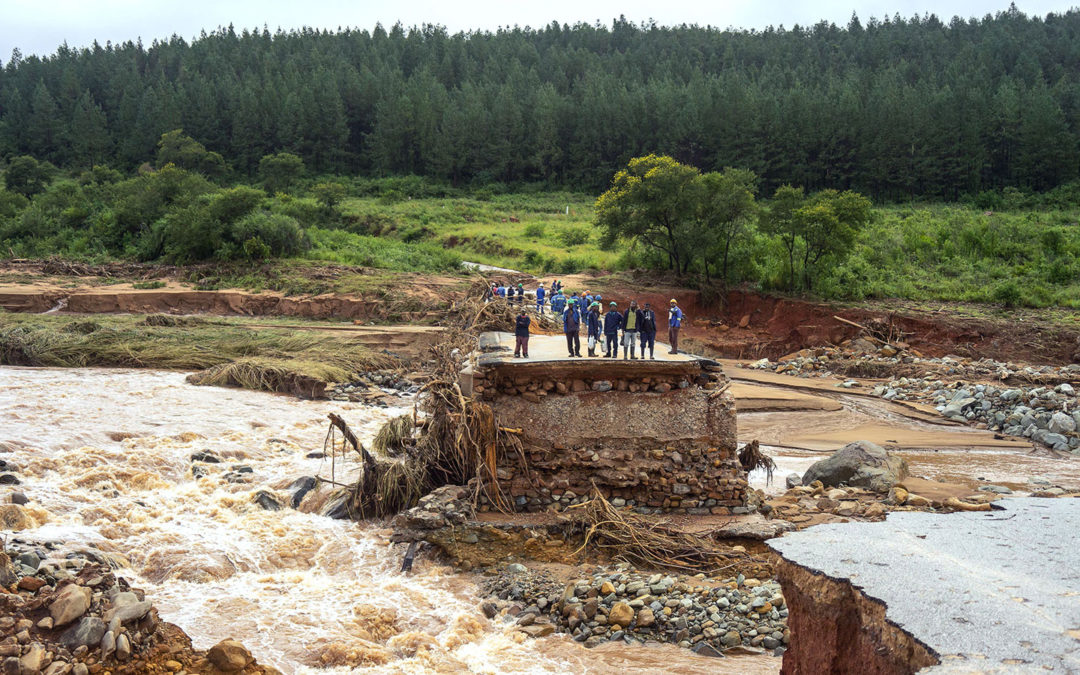SOURCE: Grist
DATE: March 19, 2019
SNIP: A humanitarian catastrophe is underway in Mozambique, Malawi, and Zimbabwe as the full scale of devastation from Cyclone Idai becomes more clear.
The World Meteorological Organization said Idai, which made landfall five days ago, could become the worst tropical cyclone on record in the Southern Hemisphere. Mozambique President Filipe Nyusi fears that 1,000 people may have died in his country alone. The U.N.’s World Food Program called it “a major humanitarian emergency that is getting bigger by the hour.”
Nearly 3 million people have been affected across the region, one of the poorest in the world.
Cyclone Idai is not a natural disaster; the storm was made worse by climate change, centuries of colonialism, and continuing international injustices.
There are at least three major ways that the Mozambique floods are related to climate change: First, a warmer atmosphere holds more water vapor, which makes rainfall more intense. Idai produced more than two feet of rainfall in parts of the region — nearly a year’s worth in just a few days. Second, the region had been suffering from a severe drought in recent years in line with climate projections of overall drying in the region, hardening the soil and enhancing runoff. Third, sea levels are about a foot higher than a century ago, which worsens the effect of coastal flooding farther inland.
During four centuries of colonial rule, Mozambique was used as a source of slaves, mines, and plantation agriculture. The nation gained independence from Portugal in 1975 after a 10-year long revolutionary war. A devastating 15-year civil war followed shortly thereafter. But the war’s legacy lasts. Mozambique ranks 180th out of 189 countries in the U.N.’s Human Development Index — a measure of life expectancy, education, and economic prosperity — the lowest of any cyclone-prone country in the world.
Decades of dictatorship and unrest followed British colonization in neighboring Zimbabwe and Malawi. All three countries are among the poorest in the world.
For decades, folks in the global South have called for climate reparations — a large-scale transfer of wealth to help poorer countries adapt to climate change.
We had some tenuously promising signs during Paris Agreement negotiations. Rich countries committed to ramping up aid to $100 billion per year in restorative climate funding by 2020. We’re one year out, and barely 10 percent of the initial funds have been raised.

